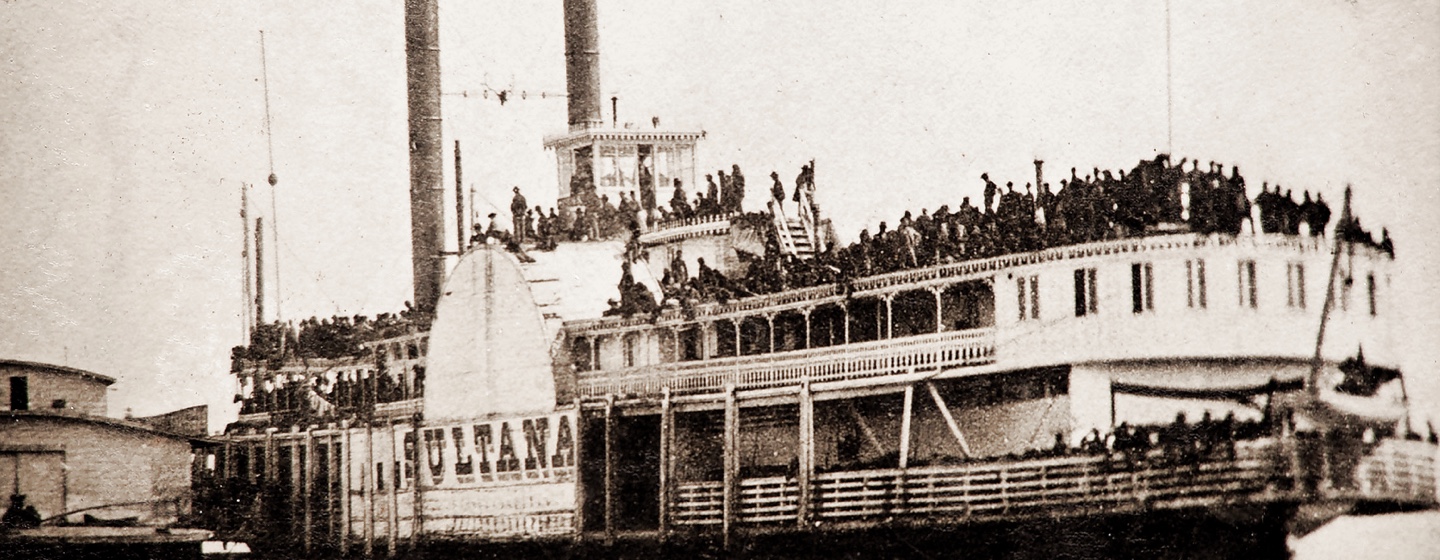
On April 27, 1865, just a few weeks after the conclusion of the Civil War, a side-wheel steamboat exploded and sank while traveling up the Mississippi River. Killing an estimated 1,800 people, it was one of the worst maritime disasters in U.S. history.
Recorded as being more deadly than the sinking of the Titanic, one would think this to be a well-known event, but few recall the story of the explosion aboard the Sultana, and not many know how it really happened. In this article, we will shed light on the event, how historians think it occurred, and try to honor those who passed in this tragic accident.
The Sultana
A 260-foot long steamboat constructed completely of wood in 1863, The Sultana was designed for cotton trade. The boat registered 1,719 tons and typically carried a crew of 85 men. For two years, the Sultana’s regular route was between St. Louis and New Orleans. Although the boat was designed to carry less than 100 men, it was frequently commissioned to carry troops to where they needed to go; in this case, home.
The Story
On that day in April, the steamboat was carrying almost five times its capacity with 2,300 recently released Union prisoners of war, crew and civilians. The weather was cold, the water was moving quickly, and it was filled with debris. The Sultana made it only a few miles north of Memphis when, at approximately 2:00 a.m., one of the boats four boilers exploded. Then, like a chain reaction, another two erupted in fire and shooting shrapnel. Within seconds, the ship was in flames.
The Theory
What really caused this fiery event? One of the most plausible theories is that there were too many people on board. It’s not why you would think though; the Sultana carried crowds of people like this all the time.
We mentioned earlier that the American government lacked the marine resources to execute the return of tens of thousands of men, so it came up with another method by which to get them home. The idea was to pay independent steamship operators upwards of $10 for each soldier they could carry on their boats back north.
The Sultana’s operators were determined to capitalize on this opportunity in April, but when they docked in Vicksburg, they quickly discovered that one of their boilers was leaking. Repairing the leak would have taken days to fix. Captain Mason had a hasty decision to make. Should he risk losing his lucrative cargo of soldiers to competitors? He couldn’t. Instead of getting the leak properly fixed, Mason requested that his crew patch the leaking boiler until they completed the trip and received their pay.
As we now know, the patch didn’t hold, and many lost their lives. Still, to this day, no one has been held accountable for the tragedy. Unfortunately, the prevailing theory could not be proven – resulting in no punishment ever being levied.





